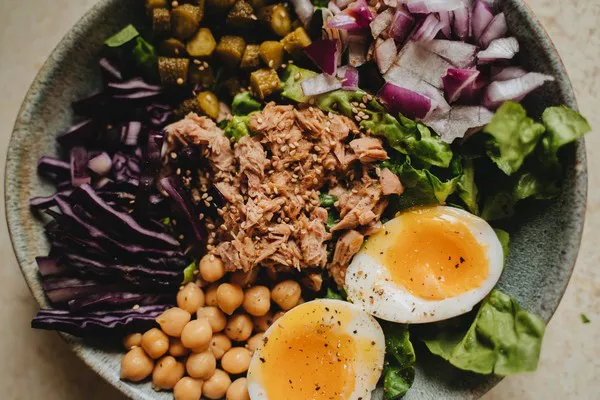When it comes to working out, what you eat before and after can have a significant impact on your performance, recovery, and overall health. Pre-workout nutrition can help fuel your workout, while post-workout nutrition can aid in muscle repair and replenish energy stores. In this article, we’ll explore what to eat before and after your workouts to optimize your results.
What to Eat Before a Workout
Before your workout, it’s essential to eat a balanced meal that provides your body with the necessary nutrients for energy and endurance. Here are some tips for what to eat before a workout:
Carbohydrates:
Carbohydrates are the primary fuel source for your muscles during exercise. Aim for a meal that contains complex carbohydrates like whole grains, fruits, and vegetables. These will provide sustained energy during your workout.
Protein:
Protein is crucial for muscle repair and growth. Include lean protein sources like chicken, fish, or tofu in your pre-workout meal. This will also help keep you feeling full and satisfied throughout your workout.
Hydration:
It’s essential to drink plenty of water before your workout to avoid dehydration. Aim to drink at least 8-16 ounces of water 30 minutes before your workout.
Timing:
Aim to eat your pre-workout meal 2-3 hours before your workout. This will allow your body to digest the food and provide energy during your workout.
Examples of pre-workout meals:
- Whole-grain toast with avocado and eggs
- Greek yogurt with berries and granola
- Grilled chicken with sweet potato and vegetables
- Oatmeal with almond butter and banana
What to Eat After a Workout
After your workout, it’s essential to refuel your body with the necessary nutrients for muscle repair and replenishment. Here are some tips for what to eat after a workout:
Protein:
After your workout, your muscles need protein to repair and rebuild. Aim for a meal that contains high-quality protein sources like chicken, fish, or plant-based options like beans or tofu.
Carbohydrates:
Carbohydrates are essential for replenishing glycogen stores in your muscles. Include complex carbohydrates like whole grains, fruits, and vegetables in your post-workout meal.
Hydration:
It’s essential to drink plenty of water after your workout to replace fluids lost during exercise.
Timing:
Aim to eat your post-workout meal within 30 minutes to an hour after your workout. This will allow your body to utilize the nutrients for muscle repair and replenishment.
Examples of post-workout meals:
- Grilled salmon with quinoa and roasted vegetables
- Tofu stir-fry with brown rice and vegetables
- Chicken and vegetable salad with sweet potato
- Protein smoothie with berries, spinach, and Greek yogurt
Other Considerations
In addition to pre and post-workout nutrition, there are some other considerations to keep in mind for optimal performance and recovery:
Snacks:
If you’re working out for less than an hour, you may not need a full meal before or after your workout. Instead, opt for a small snack like a piece of fruit or a protein bar.
Supplements:
While a balanced diet is the best way to get the nutrients you need, some supplements may be beneficial for performance and recovery. Speak to a healthcare professional before adding supplements to your regimen.
Allergies and intolerances:
If you have any allergies or intolerances, make sure to choose foods that work for you. There are many options available, and it’s essential to find what works best for your body.
What you eat before and after your workouts can have a significant impact on your performance and recovery. Aim for a balanced meal that includes complex carbohydrates, lean protein, and plenty of hydration before your workout. After your workout, focus on replenishing your glycogen stores with complex carbohydrates and providing your muscles with the necessary protein for repair and growth. Timing is also crucial, with a goal to eat your pre-workout meal 2-3 hours before and post-workout meal within 30 minutes to an hour after your workout.
Snacks and supplements may also be beneficial, but it’s essential to speak to a healthcare professional before adding them to your regimen. Finally, it’s crucial to consider any allergies or intolerances and find foods that work best for your body.
In summary, a balanced diet with the right combination of nutrients and timing can help optimize your workout performance and recovery. By focusing on what you eat before and after your workouts, you can achieve your fitness goals and maintain good health.


